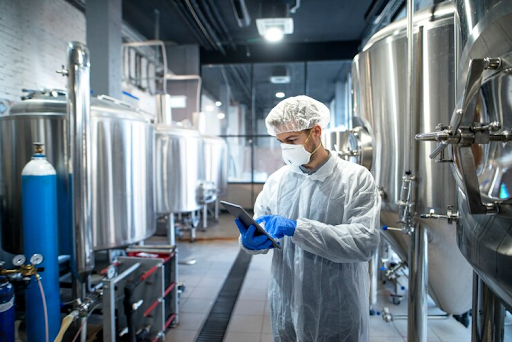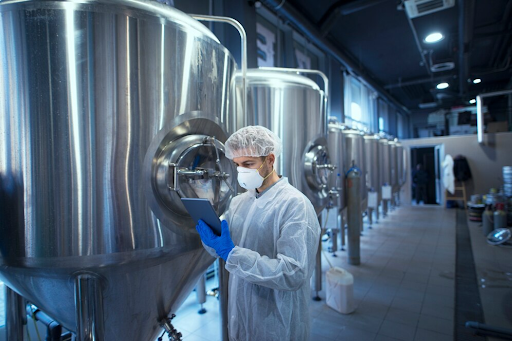Table of Content
- What is a Bio-Kill Tank System?
- How to Choose the Best Bio-Kill Tank System?
- Top 5 Bio-Kill Tank Manufacturers in the world
- Conclusion
- FAQs
Hey! It’s Monday Morning, and I am writing this article with a cup of coffee. I have grilled my brain to jot down the basics of the Bio-Kill Tank System and How to choose the best one.
In addition, I have added a list of Top 5 Bio-Kill Tank Manufacturers across the globe! And some FAQs, too. Please enjoy the pieces of this blog and share its bits and bytes with your dear ones as well.
What is a Bio-Kill Tank System?

A Bio-kill tank system is designed to treat and dispose of biological contaminants, hazardous materials, and organic waste streams. The system employs physical, chemical, and biological processes to neutralise harmful substances and make them safe for disposal or further treatment.
A typical Bio Kill Tank System has the following components:
1. A Primary Containment Tank:
As the name suggests, it is the primary vessel for holding and processing the contaminated materials. It has mixers and aeration systems to promote effective treatment.
2. Biological Treatment Units:
A Biological Treatment Unit employs microorganisms, like bacteria and fungi, to break down organic pollutants in the contaminated materials. The Standard biological treatment methods used are aerobic digestion, anaerobic digestion, biofiltration, and activated sludge processes.
3. Chemical Treatment Systems:
Chemical agents can either enhance the treatment process or neutralise specific contaminants. Chemical treatment includes adding oxidising agents, coagulants, or pH-adjusting substances. This process helps break down organic matter or precipitate heavy metals.
4. Monitoring and Control Systems:
A Bio-kill tank system often has sensors, probes, and monitoring devices to track critical parameters like temperature, pH, dissolved oxygen levels, and microbial activity. An automated control system can adjust the process parameters in real-time to optimise treatment efficiency and ensure compliance with regulatory standards.
5. Secondary Containment Structure:
Bio-kill tank systems are often equipped with secondary containment structures like bunds, dikes, or impermeable liners to mitigate the risk of leaks or spills. These measures help prevent environmental contamination and minimise the impact of potential accidents or failures.
How to Choose the Best Bio Kill Tank System?

Knowing whether a Bio Kill Tank system works well for you is essential. I have created a checklist here to help you with this process:
1. Treatment Capacity and Throughput:
First, Calculate the volume of contaminated materials or wastewater that needs to be processed daily, weekly, or monthly. Then, choose a bio-kill tank system with sufficient capacity and throughput to handle your anticipated flow rates and production volumes effectively.
2. Treatment Efficiency and Performance:
Before purchasing a Bio-Kill Tank System, it is better to evaluate and compare the effectiveness of different bio-kill tank systems in removing contaminants and achieving desired treatment objectives. Factors like treatment efficiency, microbial activity, chemical dosing requirements, and the ability to meet regulatory discharge standards must be studied to make the right choice.
3. Process Flexibility and Adaptability:
Assess the adaptability of the bio-kill tank system to changes in operating conditions, feedstock composition, and treatment requirements. In addition to this, opt for systems that offer modular design, adjustable process parameters, and scalability to adapt to evolving needs and challenges.
4. Reliability and Maintenance Requirements:
Choose a bio-kill tank system with a proven track record of reliability, durability, and low maintenance requirements. Consider factors like equipment lifespan, maintenance intervals, spare parts availability, and technical support services offered by the manufacturer or supplier.
Manufacturers like TSA hold a golden record in providing the finest bio-kill tank systems, validation documents, and excellent services.
Click here to learn more about the Bio Kill Tank System.
5. Compliance with Regulatory Standards:
Ensure the selected bio-kill tank system complies with relevant environmental regulations, industry standards, and permitting requirements. Verify the system’s ability
to meet discharge limits for contaminants, effluent quality criteria, and other regulatory obligations applicable to your industry or jurisdiction.
6. Cost-effectiveness and Return on Investment (ROI):
While choosing a Bio Kill Tank System, it is necessary to evaluate the total cost of ownership (TCO) associated with different bio-kill tank systems; this includes capital costs, operating expenses, and lifecycle costs. Also, energy consumption, chemical usage, labour requirements, and potential savings or revenue from treated effluent or by-products should be considered.
Top 5 Bio-Kill Tank Manufacturers in the world
To assist you more, I am adding a list of the top 5 Bio-Kill Tank System manufacturers worldwide.
1. TSA

Waste generated by the biopharma industry must be decontaminated to protect the environment. This biowaste is either subjected to heat or chemical treatment for its inactivation. The Bio Kill Tank System offered by TSA takes care of this process efficiently.
The Bio Kill Tank System is fully customisable and meets stringent regulatory protocols. You can choose from options like batch and continuous kill tank system per your requirements.
The customisations available include integration of collection tank, complete or partial automation, single or dual Bio Kill System, and full qualification and validation package.
Click here to learn more about the Bio Kill Tank System.
2. BioKill

Wastech Engineering offers pre-packaged Biological Waste Inactivation (Biokill) Systems. They are available in multiple sizes and configurations. BioDELTA™ Duo kills the biological matter and adjusts the pH as well. BioDELTA™ Trio kills the biological matter while adjusting the pH and is also integrated with CIP. Therefore, it proves to be a cost-effective option for you.
3. Prisystems

Prisystems offers biosystems like Effluent treatment, Carcass Treatment, pH Neutralization, Regulated Waste Treatment and Autoclave Sterilizers. These biowaste inactivation systems efficiently remove wastes like liquid, tissue, and solids. It acts as a line of defence to support medical and scientific research.
4. Suncombe

Suncombe renders BioWaste Decontamination BioKill Systems, which are heavy-duty, validateable hazardous waste treatment systems. These are applicable for treating biowaste generated by research, laboratory, production and bio-containment facilities. It is suitable for many needs, from a single laboratory room to a large multi-user facility, for production and process waste decontamination.
5. BioAspire

Bioaspire offers Bio-kill Systems in multiple sizes and configurations. These systems are skid-mounted, designed and fabricated as a single, integrated system. There are no issues with its compatibility, interface, communication or service issues. BioAspire brings a cost-effective option that can be enjoyed by reducing field installation requirements and Operating workforce.
Conclusion
At times, it may be challenging to make the right choice, especially when you have many options in the market. In such a situation, I hope you find this blog helpful in making the right decision.
To conclude this blog, choose the bio-kill system that fits the checklist, as mentioned here. Also, I have included a list of the top 5 Bio-kill Tank Manufacturers in the world, and I hope that helps you.
If you have any queries, feel free to contact us at TSA!
FAQs
A: A Bio-kill tank system is designed to treat and dispose of biological contaminants, hazardous materials, and organic waste streams. The system employs physical, chemical, and biological processes to neutralise harmful substances and make them safe for disposal or further treatment.
A: A typical Bio-Kill Tank System has a Primary Containment tank, a Biological Treatment Unit, a Chemical Treatment System, a Monitoring and Sensory System, and a Secondary Containment Structure.
A: The critical factors in choosing the right Bio-Kill Tank System include Treatment Capacity and Throughput, Treatment Efficiency and Performance, Process Flexibility and Adaptability, Reliability and Maintenance Requirements, Compliance with Regulatory Standards and Cost-effectiveness and ROI.
A: The Bio Kill Tank Systems by TSA are the best in the world. TSA takes care of your needs and can custom-design for you. Other customisations are available, such as integration of collection tank, complete or partial automation, single or dual Bio Kill System, and full qualification and validation package.
A: The Top 5 Bio-Kill Manufacturers in the world are TSA, BioKill, Prisystems, Suncombe, and BioAspire.






